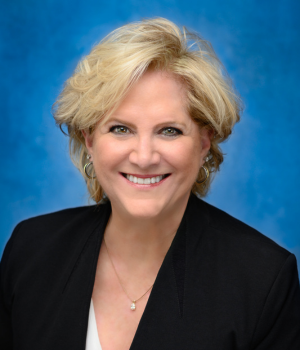

If the Financial Planning Coalition were still standing, it would have wobbled over the Department of Labor’s latest investment advice proposal.
The coalition of three industry trade groups dissolved in 2022 when the Financial Planning Association departed after announcing that it would launch an effort to achieve legal recognition for the term “financial planner,” which could require state regulation.
That put the FPA at odds with another member of the FPC, the Certified Financial Planner Board of Standards. The CFP Board opposes state regulation of financial planners. The third member of the coalition was the National Association of Personal Financial Advisors.
Although the FPA and the CFP Board both have at their hearts the CFP credential – the FPA is a 15,000-member organization for CFPs, and the CFP Board sets and enforces standards related to the mark – they don’t always stand shoulder to shoulder on issues affecting CFPs.
The latest example of an arm’s-length distance between the two groups involves the DOL proposal, which would impose the fiduciary duty contained in federal retirement law on most financial advisors and insurance agents making investment recommendations to retirement plans, plan participants and customers, and clients in individual retirement accounts. The DOL’s goal is to reduce advisors’ conflicts of interest that can lead to high fees that erode their nest eggs.
The CFP Board supports the proposal, saying retirement investors deserve a fiduciary standard of care at a time when retirement saving is becoming increasingly complex. The CFP mark comes with its own fiduciary requirements.
“CFP Board urges the Department to move forward expeditiously with a final rule that is designed to protect retirement investors,” Leo Rydzewski, CFP Board general counsel, wrote in a January 2 comment letter.
The FPA encouraged the DOL to slow down in its comment letter. The organization expressed concerns about the DOL rule potentially raising compliance costs for its members, increasing the cost of advice and reducing access to advice for some retirement savers – an argument that echoes criticisms made by financial industry opponents of the DOL proposal.
“The proposed rule makes a number of changes to the current regulatory framework that will require significantly more time for meaningful analysis and comment, and to understand how this proposal would impact financial planners and retirement savers, alike,” FPA CEO Patrick Mahoney wrote in a January 2 comment letter.
FPA president Claudia Cypher Kane said the FPA is trying to get a better understanding of what the DOL is trying to accomplish and how.
“I wouldn’t say we’re for. I wouldn’t say we’re against. I wouldn’t say we’re ambivalent,” said Kane, an advisor at Beacon Wealth Strategies. “I would just say we’re neutral at this point in time, just hoping for more clarity and hoping for more time.”
There’s no waffling about the DOL proposal from the CFP Board, which says it has supported such a measure for years. A similar Obama administration rule was vacated in 2018 in a federal appeals court.
“While the coalition no longer exists, CFP Board remains steadfast in our continued advocacy for all financial advice being delivered at a fiduciary standard,” CFP Board CEO Kevin Keller said. “We’ve been consistent for more than a decade in support of the DOL expanding the definition of fiduciary.”
Kane said she hadn’t read the CFP Board’s comment letter and deferred to FPA staff regarding differences between the groups on the DOL proposal. An FPA spokesperson did not respond to two requests for comment.
The other point of tension between the FPA and the CFP Board – the title protection initiative – may linger for a while. The effort could take up to a decade rather than the two or three years that were originally envisioned to conclude the project, Kane said.
“I don’t think we realized how long it was going to take,” Kane said. “We haven’t even begun to define what we’re looking for. But we’re going to keep putting one foot in front of the other, keep talking to people, keep building relationships with other stakeholders so that we successfully move it forward. The key thing is we want to establish financial planning as a true profession.”
The CFP Board and the FPA likely will continue to agree to disagree over the FPA’s approach to title protection, particularly if it goes through state legislatures. But that doesn’t mean the groups are hostile toward each other, Keller said.
“We have a good working relationship,” Keller said. “CEOs talk on a regular basis. The [CFP Board] chair and [the FPA] president talk on a regular basis. We both want to advance the financial planning profession. Eighty-five to 90 percent of the time, we agree on how to do that. This might be one of those times where we might have a little bit different view on how to do that.”
CFP Board chair Matthew Boersen, managing partner at Straight Path Wealth Management, added: “It doesn’t exclude us from working together on a variety of other issues.”

Trying to achieve legal protection for the title of “financial planner” is likely to be at the top of the Financial Planning Association’s priority list for several years. In addition to that effort, the group’s president, Claudia Cypher Kane, is adding a push for financial literacy and promoting FPA cohesion during her one-year term that began in January.
Kane wants the FPA to be at the forefront of advocating for states to include financial literacy courses in high school curricula. “The kids need to be educated, and the parents need to be educated to educate the kids,” said Kane, an advisor at Beacon Wealth Strategies. She also wants to strengthen the relationship between FPA state chapters and its corporate leadership. “We’re one team,” she said.

Chasing productivity is one thing, but when you're cutting corners, missing details, and making mistakes, it's time to take a step back.

It is not clear how many employees will be affected, but none of the private partnership’s 20,000 financial advisors will see their jobs at risk.

The historic summer sitting saw a roughly two-thirds pass rate, with most CFP hopefuls falling in the under-40 age group.

"The greed and deception of this Ponzi scheme has resulted in the same way they have throughout history," said Daniel Brubaker, U.S. Postal Inspection Service inspector in charge.

Elsewhere, an advisor formerly with a Commonwealth affiliate firm is launching her own independent practice with an Osaic OSJ.
Stan Gregor, Chairman & CEO of Summit Financial Holdings, explores how RIAs can meet growing demand for family office-style services among mass affluent clients through tax-first planning, technology, and collaboration—positioning firms for long-term success
Chris Vizzi, Co-Founder & Partner of South Coast Investment Advisors, LLC, shares how 2025 estate tax changes—$13.99M per person—offer more than tax savings. Learn how to pass on purpose, values, and vision to unite generations and give wealth lasting meaning
